第65章 Chapter XV. The Secret Of Success In Public Speaki
One of the most encouraging signs in connection with the Tuskegee school is found in the fact that the organization is so thorough that the daily work of the school is not dependent upon the presence of any one individual. The whole executive force, including instructors and clerks, now numbers eighty-six. This force is so organized and subdivided that the machinery of the school goes on day by day like clockwork. Most of our teachers have been connected with the institutions for a number of years, and are as much interested in it as I am. In my absence, Mr. Warren Logan, the treasurer, who has been at the school seventeen years, is the executive. He is efficiently supported by Mrs. Washington, and by my faithful secretary, Mr. Emmett J. Scott, who handles the bulk of my correspondence and keeps me in daily touch with the life of the school, and who also keeps me informed of whatever takes place in the South that concerns the race. I owe more to his tact, wisdom, and hard work than I can describe.
The main executive work of the school, whether I am at Tuskegee or not, centres in what we call the executive council. This council meets twice a week, and is composed of the nine persons who are at the head of the nine departments of the school. For example: Mrs. B.K. Bruce, the Lady Principal, the widow of the late ex-senator Bruce, is a member of the council, and represents in it all that pertains to the life of the girls at the school.
In addition to the executive council there is a financial committee of six, that meets every week and decides upon the expenditures for the week. Once a month, and sometimes oftener, there is a general meeting of all the instructors. Aside from these there are innumerable smaller meetings, such as that of the instructors in the Phelps Hall Bible Training School, or of the instructors in the agricultural department.
In order that I may keep in constant touch with the life of the institution, I have a system of reports so arranged that a record of the school's work reaches me every day of the year, no matter in what part of the country I am. I know by these reports even what students are excused from school, and why they are excused--whether for reasons of ill health or otherwise. Through the medium of these reports I know each day what the income of the school in money is; I know how many gallons of milk and how many pounds of butter come from the diary; what the bill of fare for the teachers and students is; whether a certain kind of meat was boiled or baked, and whether certain vegetables served in the dining room were bought from a store or procured from our own farm. Human nature I find to be very much the same the world over, and it is sometimes not hard to yield to the temptation to go to a barrel of rice that has come from the store--with the grain all prepared to go in the pot--rather than to take the time and trouble to go to the field and dig and wash one's own sweet potatoes, which might be prepared in a manner to take the place of the rice.
I am often asked how, in the midst of so much work, a large part of which is for the public, I can find time for any rest or recreation, and what kind of recreation or sports I am fond of.
This is rather a difficult question to answer. I have a strong feeling that every individual owes it to himself, and to the cause which he is serving, to keep a vigorous, healthy body, with the nerves steady and strong, prepared for great efforts and prepared for disappointments and trying positions. As far as I can, I make it a rule to plan for each day's work--not merely to go through with the same routine of daily duties, but to get rid of the routine work as early in the day as possible, and then to enter upon some new or advance work. I make it a rule to clear my desk every day, before leaving my office, of all correspondence and memoranda, so that on the morrow I can begin a NEW day of work. I make it a rule never to let my work drive me, but to so master it, and keep it in such complete control, and to keep so far ahead of it, that I will be the master instead of the servant. There is a physical and mental and spiritual enjoyment that comes from a consciousness of being the absolute master of one's work, in all its details, that is very satisfactory and inspiring. My experience teachers me that, if one learns to follow this plan, he gets a freshness of body and vigour of mind out of work that goes a long way toward keeping him strong and healthy. I believe that when one can grow to the point where he loves his work, this gives him a kind of strength that is most valuable.